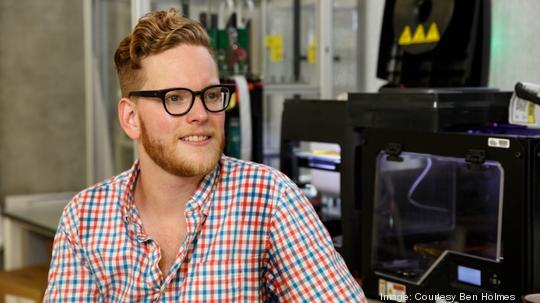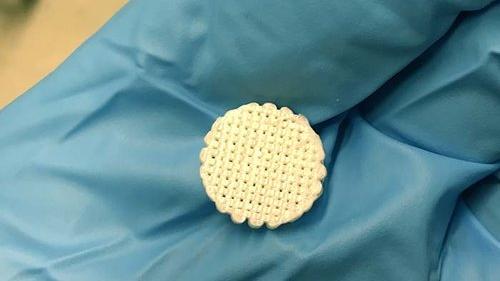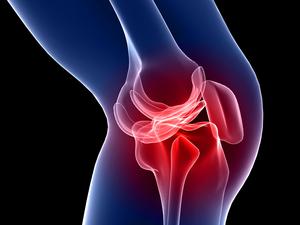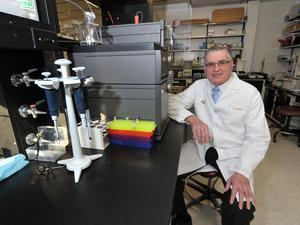
A local medical device startup is raising millions to take its 3D-printed implants for joint injuries to clinical trials.
D.C.’s Nanochon LLC is aiming to close a $3.5 million seed round in January to fund the first human study of its product, an alternative to joint replacement surgery, said Nanochon co-founder and CEO Ben Holmes in an interview. The technology, licensed from George Washington University, replaces lost or damaged cartilage and will target a lower cost than existing options.
The new funding would position the med-tech company to start its first clinical trial in the fourth quarter of 2021.
That follows a mechanical testing study of the material itself to demonstrate its durability, and a proof-of-concept animal study that showed the implant stimulated cell regrowth in about four months versus the eight-to-12-month period typical for other research-stage technologies, Holmes said. That early data could indicate “people are going to be on their feet and recovered potentially much faster than they are with the current options,” he said, adding: “And because we’re seeing a high-quality cartilage, that’s why we predict this would actually last for a long time in humans.”
The company still faces a long road ahead. Nanochon must execute multiple studies and earn approval from the Food and Drug Administration before it can reach patients. That likely wouldn’t happen until late 2024 or early 2025, Holmes said.

Curveball
The company originally planned to “go out and aggressively raise money” before the coronavirus outbreak, Holmes said. “I would say we probably lost a full four to five months of viable fundraising time; investors were justifiably freaking out toward the earlier side of the pandemic and people weren’t even taking meetings.”
Nanochon’s eight-person team caught some attention along the way. It went through the University of California, San Francisco’s Rosenman Innovators program in the spring, and is now involved in the Johnson & Johnson Innovation’s JLABS incubator and the Creative Destruction Lab program, part of the University in Toronto’s Rotman School of Management.
The fresh funding would mark the company’s first institutional round; it has raised less than $500,000 to date from grants, and friends and family. But it will still need approximately $20 million all-in to get its product to market, Holmes said. So he’s expecting to raise a roughly $15 million Series A round at some point in 2022, likely a few months after getting some baseline data from its study.
On the horizon
The 5-year-old startup is targeting active people ages 20 to 50, perhaps former high school and college athletes, who have started to develop knee problems because of a sports injury or accident, or suffer from early cartilage loss. Nanochon wants to provide these patients a shorter recover and longer-lasting implant, Holmes said.
It’s also aiming to expand access to care, as cell-based therapies are not widely reimbursed. The 3D-printed implant could sell at a “much more comfortable price point” around $3,000 — about the cost of a knee replacement. Donor tissue graft, an existing technique used in such cases, can cost around $10,000. Another alternative is “being on pain meds until you’re 50 and can get a knee replacement,” Holmes said. “That’s the most common, and I think when you talk about what are the far-future clinical benefits, it’s basically treating people effectively now so they don’t need a knee replacement when they’re in their 50s or 60s.”
“Beyond the nuts and bolts of the business, that’s the far-future moonshot potential,” he said, adding that Nanochon’s goal is to get insurance companies to cover the cost for its device: “We’ve got something we think we can retail for a reimbursable price point.”
But there’s more on the company’s mind. Holmes and Nathan Castro, Nanochon’s co-founder and chief technology officer, earned doctorates from GWU with work in the university’s tissue engineering lab. And they’re eyeing their eventual exit.
The end game? Take the implant to market with a strategic partner and sell the company to an industry giant, Holmes said. That’s what he told us back in 2018 and, he said, “that’s definitely still the goal.”




